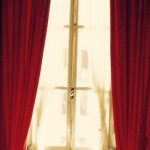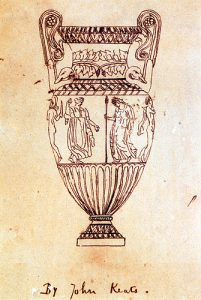Remembering John Keats…

Window, Keats’ House
“Thou shalt remain, in midst of other woe
Than ours, a friend to man…”
It’s February 23rd today.
On Friday, February 23rd 1821, John Keats died in Rome in the narrow rooms of a little apartment tucked beside the Spanish Steps.
Sophia visited it as a small child. It had quite an effect on her.
This was the house of a writer, and 4-year-old Sophie—pint-sized lover of words, maker of stories, singer of songs—knew even then that she was going to be a writer.
Keats was one of her own, and he remained so.
In Sophie’s last collection, Rough Sleepers, Keats is one of her interlocutors, one of the voices with whom she speaks.
Ode on a Grecian Urn was probably her favourite of all his poems. Full of both ideas and history, it lived in her own thought—the words still vivid, still full of power—which is, of course, the greatest gift one can give to a poet.
“There is this unfilled alchemy,” Sophie says in her wry way in Veracious Science, a poem in Rough Sleepers, “There are these Ideas in pots”.
Here’s to your “Ideas in pots”, John Keats—remembered, always.
Ode on a Grecian Urn

Thou still unravish’d bride of quietness,
Thou foster-child of silence and slow time,
Sylvan historian, who canst thus express
A flowery tale more sweetly than our rhyme:
What leaf-fring’d legend haunts about thy shape
Of deities or mortals, or of both,
In Tempe or the dales of Arcady?
What men or gods are these? What maidens loth?
What mad pursuit? What struggle to escape?
What pipes and timbrels? What wild ecstasy?
Heard melodies are sweet, but those unheard
Are sweeter; therefore, ye soft pipes, play on;
Not to the sensual ear, but, more endear’d,
Pipe to the spirit ditties of no tone:
Fair youth, beneath the trees, thou canst not leave
Thy song, nor ever can those trees be bare;
Bold Lover, never, never canst thou kiss,
Though winning near the goal yet, do not grieve;
She cannot fade, though thou hast not thy bliss,
For ever wilt thou love, and she be fair!
Ah, happy, happy boughs! that cannot shed
Your leaves, nor ever bid the Spring adieu;
And, happy melodist, unwearied,
For ever piping songs for ever new;
More happy love! more happy, happy love!
For ever warm and still to be enjoy’d,
For ever panting, and for ever young;
All breathing human passion far above,
That leaves a heart high-sorrowful and cloy’d,
A burning forehead, and a parching tongue.
Who are these coming to the sacrifice?
To what green altar, O mysterious priest,
Lead’st thou that heifer lowing at the skies,
And all her silken flanks with garlands drest?
What little town by river or sea shore,
Or mountain-built with peaceful citadel,
Is emptied of this folk, this pious morn?
And, little town, thy streets for evermore
Will silent be; and not a soul to tell
Why thou art desolate, can e’er return.
O Attic shape! Fair attitude! with brede
Of marble men and maidens overwrought,
With forest branches and the trodden weed;
Thou, silent form, dost tease us out of thought
As doth eternity: Cold Pastoral!
When old age shall this generation waste,
Thou shalt remain, in midst of other woe
Than ours, a friend to man, to whom thou say’st,
“Beauty is truth, truth beauty—that is all
Ye know on earth, and all ye need to know.”

sweet remembrance
Yes, definitely. I remember it so clearly, that day at Keats’ House.
It was so calm and peaceful after the absolute craziness of all the tourists outside. I don’t know if it would be like that now–life has got even busier in the years between–but it was so then.
Soph and I (plus one other person who left shortly after we arrived) were the only visitors there.
The rooms were hushed and quiet. It was as if we had taken a step back in time–the world slowed down and the tiny rooms seemed to float suspended within it.
As you can imagine, Sophie was wide-eyed, in that deeply engaged and focussed way she had, even as a tiny child.
It was a great day. The house is well worth the visit. I would recommend anyone to go there.